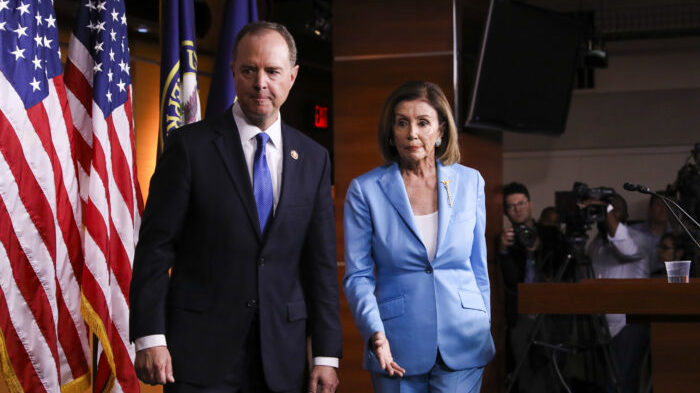Over at The Bulwark, Tim Miller more or less pleads for Democrats to start acting like they mean it when they claim President Trump is a unique danger to American values.
He writes: “I have the sneaking suspicion that a lot of Democrats don’t actually view Trump as a unique crisis. Or rather: They don’t view him as being more than a difference in degree from the “emergency-crisis” Republicans always represent. For these Democrats, all of Republican/conservatism has been inevitably leading to Trump and the only difference between Trump and, say, George H.W. Bush, is that Trump says the quiet part out loud.”
If we want a better politics and more effective government, political leaders and activists will need to rediscover the ability to differentiate among their opponents on the other side of the aisle. From the perspective of conservatives, American politics was better when the Democratic Leadership Council was pushing for ideas like welfare reform, charter schools, public school choice, and middle-class tax cuts in that party. From the perspective of liberals, American politics was better when the Republican Main Street Partnership was a more significant force in the GOP, pushing for the most pragmatic options and trying to find policy solutions that wouldn’t freak out soccer moms. While you may want to defeat as many of the opposing party’s candidates as possible in November, you’re probably going to have to work with some of them after the elections. If the Trump presidency offers any lesson for the country, it’s that once everybody’s considered to be as bad as the devil, then nobody is treated like they’re as bad as the devil.
HBO host Bill Maher realized the mistake on the eve of the 2016 election: “I know liberals made a big mistake because we attacked your boy [George W.] Bush like he was the end of the world. And he wasn’t. And Mitt Romney we attacked that way. I gave Obama a million dollars because I was so afraid of Mitt Romney. Mitt Romney wouldn’t have changed my life that much or yours. Or John McCain. They were honorable men who we disagreed with and we should have kept it that way. So we cried wolf and that was wrong. But this is real. This is going to be way different.”
This Democratic presidential primary has been fascinating to watch from the perspective of the Right, because every once in a while, one of the trailing candidates makes a point that leaves conservatives nodding their heads. Tulsi Gabbard acknowledges some moral complexity on the issue of abortion and vents frustration with American overseas military operations that never seem to end satisfactorily, Marianne Williamson warns of an intangible but real crisis in the country’s spiritual health, and Andrew Yang seems like a bright guy who’s thought long and hard about the ramifications of growing automation in our economy. Conservatives are extremely unlikely to vote for those candidates, but you can see room for a productive dialogue. A Republican president who had to work with a Democratic House of Representatives full of Gabbards, Williamsons, and Yangs could probably reach a lot of compromises and productive agreements.
Meanwhile, much more prominent and influential Democratic figures keep acting like once a Democrat is in the White House again, they’ll never need to compromise with Republicans. They keep offering magic wand solutions that ignore every likely obstacle — wrangling a diverse House caucus, getting a filibuster-proof majority in the Senate, injunctions from federal courts, a Supreme Court decision that the idea violates the Constitution.
